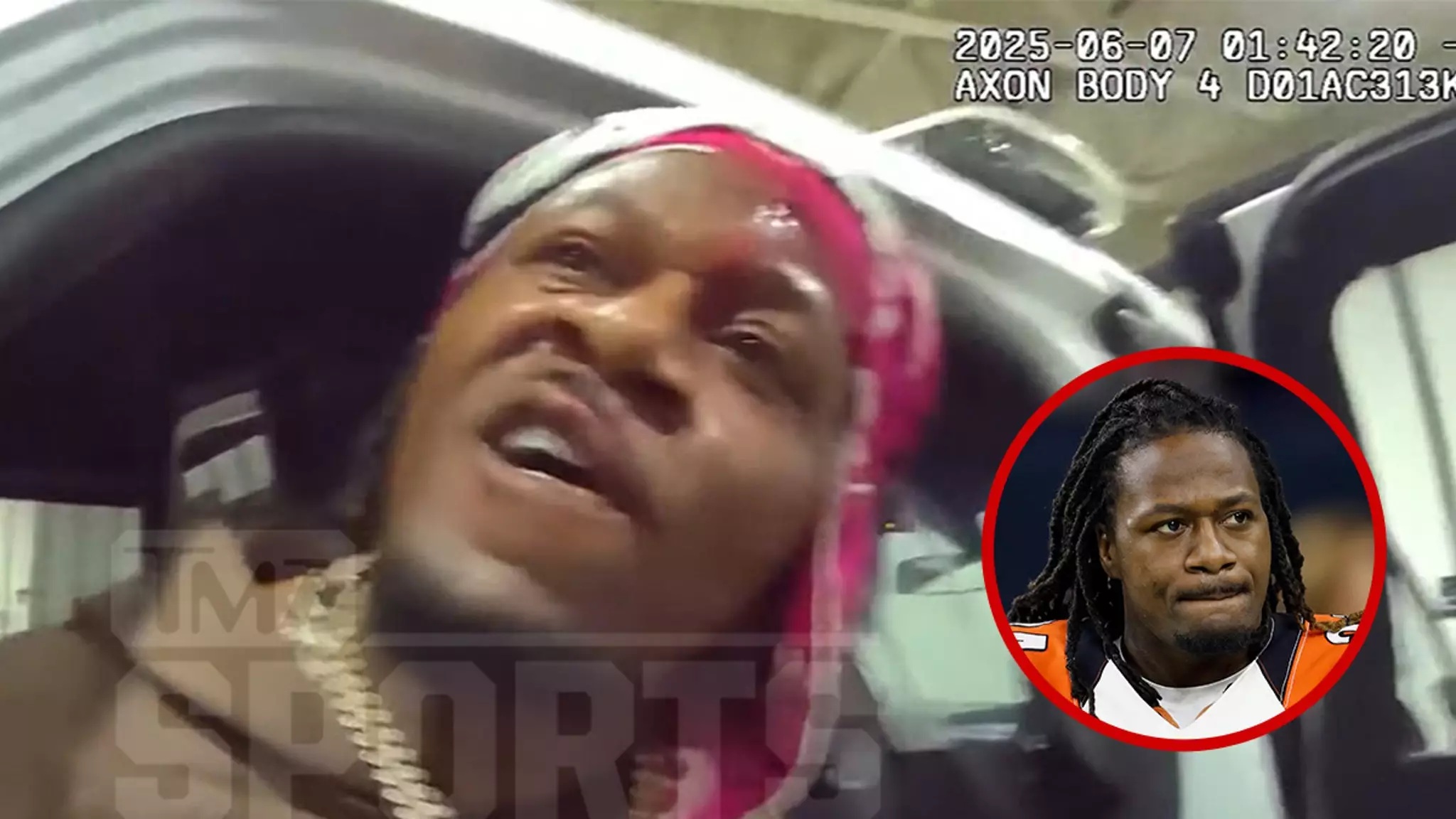The recent altercation involving former NFL player Pacman Jones epitomizes the volatile intersection of celebrity culture and law enforcement. Captured on police body camera footage, this incident sheds light on not just Jones’ public intoxication arrest, but also his aggressive demeanor that raised alarms during a routine police inquiry in Covington, Kentucky on June 7. Initially approached by officers regarding a dispute at a nearby bar, Jones escalated the situation instead of de-escalating it.
Jones reportedly engaged verbally but later attempted to walk away from the officers, reflecting a common behavioral pattern where individuals, particularly those in elevated social statuses, feel above reproach. While he did initially offer his side of the story, his subsequent actions suggest an unwillingness to comply with the law. The moment he was detained, the narrative shifted dramatically from a simple inquiry to an outburst filled with insults and aggression.
Verbal Assault and Defiance
Once placed in handcuffs, Jones entered into a tirade, lobbing aggressive language at the officers far beyond simple dissent. His refusal to recognize the authority of law enforcement not only highlights a troubling trend among some celebrities but also a lack of accountability that can stem from fame. Language filled with expletives, combined with repeated questions about the legitimacy of the officers’ actions, demonstrates a significant level of defiance.
Jones’ belligerence continued throughout his journey to the police station, where he unleashed a torrent of insults that included derogatory terms aimed at the officers. Such confrontational behavior can have real consequences, not only for the involved parties but also for broader societal perceptions of law enforcement and respect for authority.
A Dangerous Escalation
The situation took a perilous turn when his verbal hostility transitioned into a physical confrontation. Reports indicate that Jones attempted to strike an officer with his elbow, a clear indication that the tension had reached a boiling point. Notably, one of his elbows reportedly made contact with an officer’s mouth, resulting in an injury, which underscores the serious nature of his misconduct.
This physical aggression is particularly concerning considering the broader context of police encounters with individuals experiencing intoxication or mental health crises. Such escalations can lead to disastrous outcomes, highlighting the need for not just a more effective de-escalation protocol by law enforcement, but also for better management of personal conduct by those in the public eye.
Legal Consequences and a Broader Reflection
Ultimately, Jones faces multiple charges, including assaulting an officer and disorderly conduct. He pleaded not guilty, a choice that suggests he may continue to dispute the validity of the charges laid against him. This incident serves as a poignant reminder that individuals, regardless of their fame, are not immune to the law and that reckless behavior has repercussions.
In examining Jones’ actions, it’s crucial to consider the broader implications of what such incidents mean in society. Celebrities often serve as role models, but when they engage in public intoxication and aggression, they set harmful precedents. The hope remains that Jones’ experience could serve as a wake-up call—not just for him but for others who might find themselves in similar situations to reflect on their behavior and its consequences.

